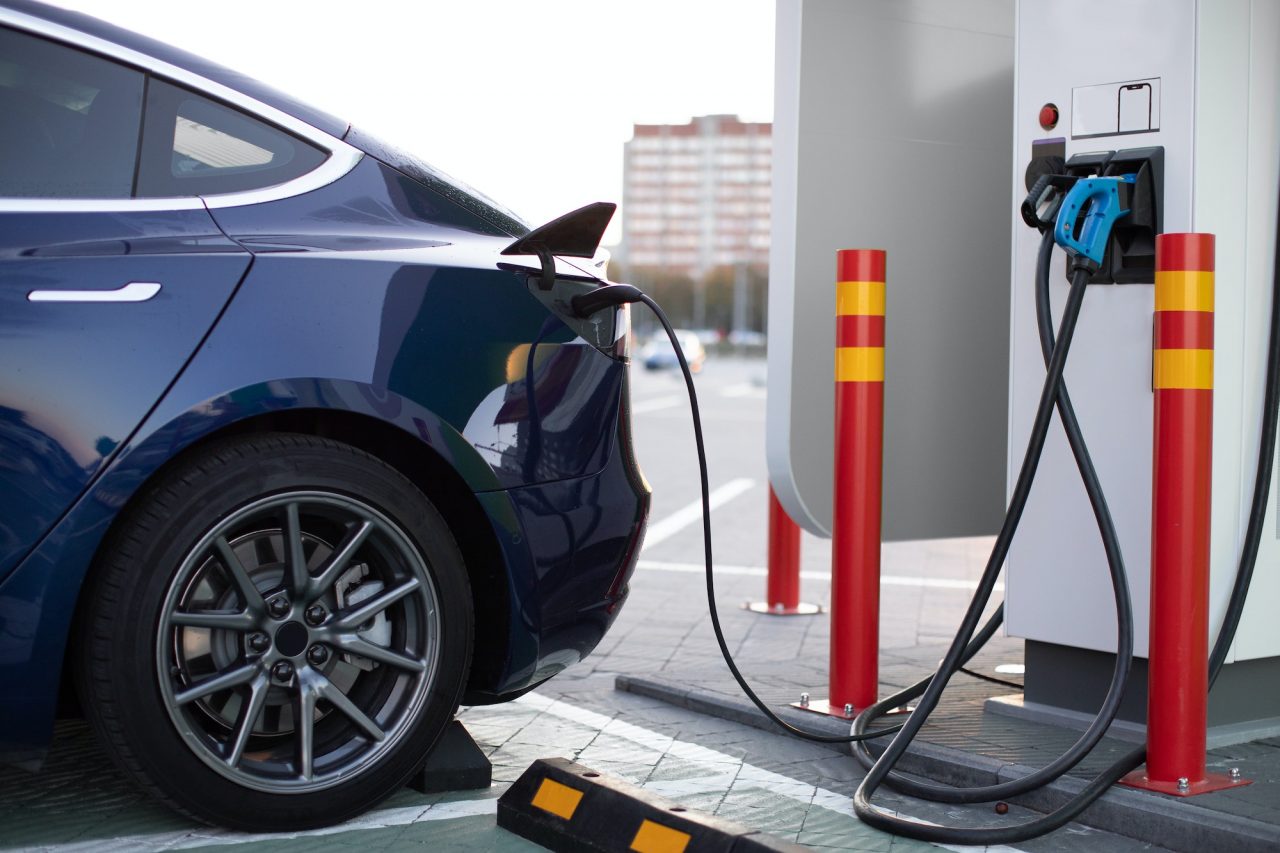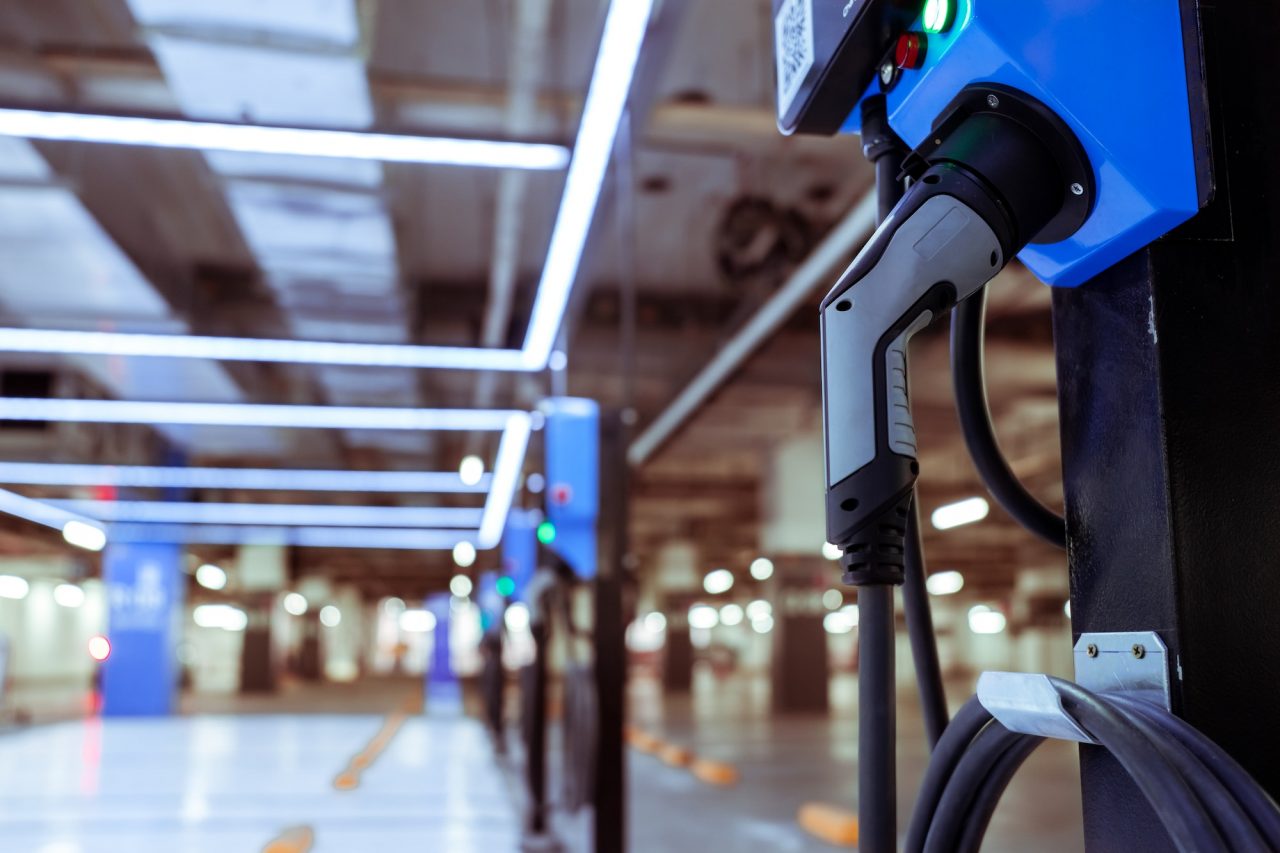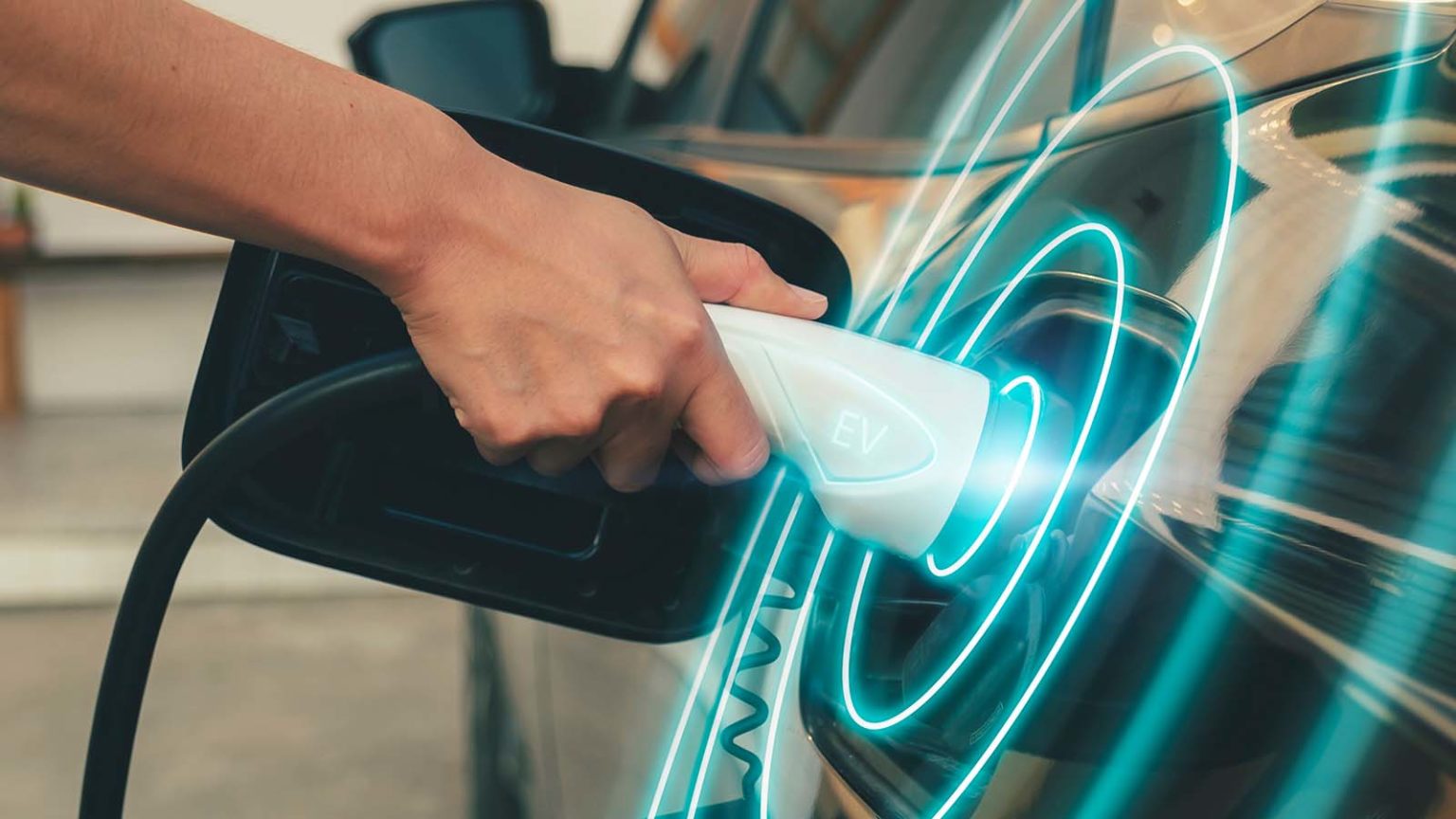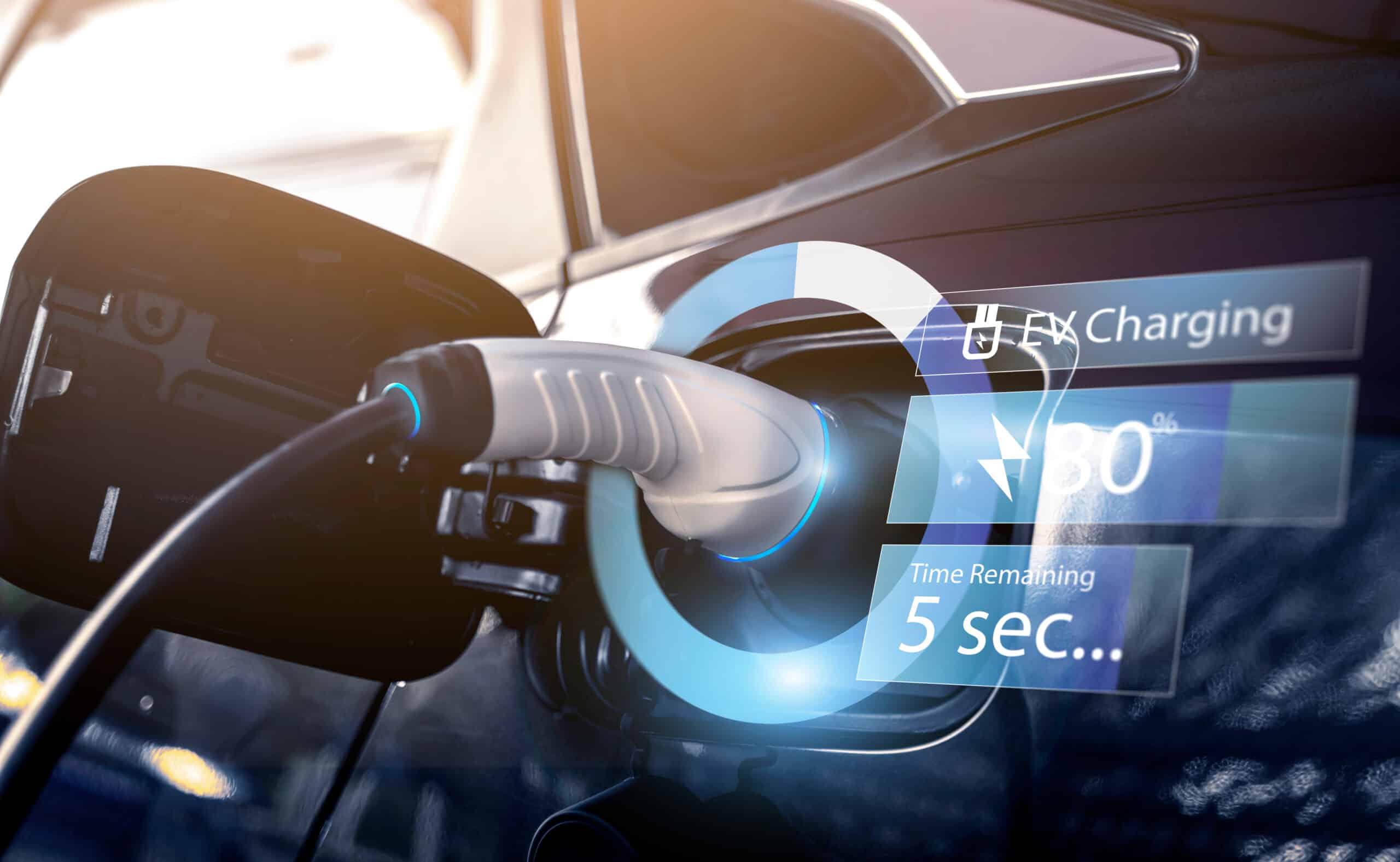EV charging explained
EV Charging is a common term for Electric Vehicle Supply Equipment (EVSE), a tool used for electric vehicles to replenish energy. It serves as a means for electric cars to recharge their batteries and ensure continuous operation.
With an array of options available for charging electric cars, the ultimate goal is to find the fastest EV charger that suits your driving needs, encompassing both charging speed and availability. For casual EV drivers, Level 1 chargers included with their car purchase may suffice. Those seeking greater daily commute range opt for Level 2 chargers. For drivers requiring extended range and faster charging, DC fast charging stations are the solution.
However, How many charging levels exist all over the world? What exactly they are and what the difference?
There’re 4 levels: Level 1, Level 2, DC Fast Charger(Level 3) and the Tesla Supercharger
Before we start, let’s know how the EV power battery work with AC and DC.
Understanding the Difference Between AC and DC Chargers for Electric Vehicles
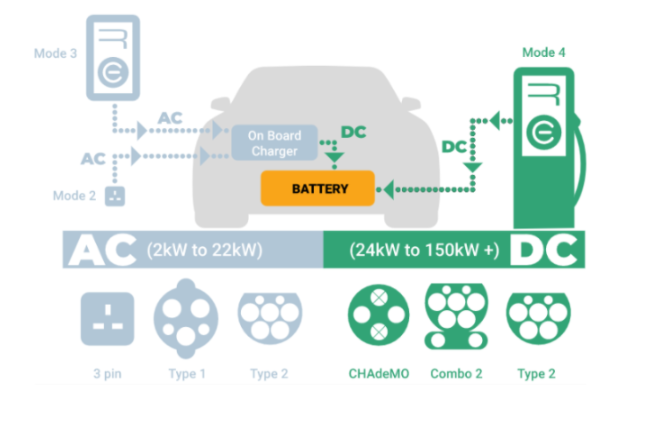
- Electric vehicle’s power battery can only accept direct current (DC) voltage. However, the electricity we commonly use is supplied by the grid, which is alternating current (AC) and needs to be converted to DC before charging the battery.
- DC charging stations integrate power modules to perform AC to DC conversion on-site.
- AC(Alternating Current) chargers supply power to the on-board charger (OBC) in the vehicle, which then performs AC to DC rectification to charge the power battery.
- DC(Direct Current) chargers bypass the on-board charger (OBC) and directly charge the battery with DC power.
Level 1 chargers
The most basic type of electric vehicle (EV) chargers. They typically come with the purchase of an electric car and are designed for standard household electrical outlets.
- Electrical circuit: 120 volts AC
- Efficiency: around 2 to 5 miles of range per hour
While they are convenient for overnight charging at home, they may not be suitable for drivers with higher daily mileage or time-sensitive charging needs.
Level 2 Chargers
A step up from Level 1 chargers and offer faster charging for electric vehicles (EVs).
- Electrical circuit required: 240-volt (typically found in residential garages or public charging stations)
- Efficiency: around 10 to 70 miles of range per hour (depending on the EV’s battery capacity and the charger’s power output)
Level 2 chargers are more suitable for daily commuting and can fully recharge an EV in a matter of hours, making them a popular choice for EV owners looking for quicker and more efficient charging solutions.
DC Fast Chargers
Also known as Level 3 chargers, are high-power charging stations designed to rapidly charge electric vehicles (EVs). Unlike Level 1 and Level 2 chargers that provide alternating current (AC) charging, DC Fast chargers deliver direct current (DC) power directly to the EV’s battery, bypassing the vehicle’s onboard charger.
- Electrical circuit required: 400 volts or higher
- Efficiency: around 60 to 80 miles of range in just 20 minutes of charging time (depending on the EV’s battery capacity and the charger’s power output)
DC Fast chargers are typically located along highways and in strategic locations to facilitate long-distance travel and reduce charging time for EV owners on the go. They are an essential part of the EV charging infrastructure, ensuring convenient and efficient charging options for drivers with time-sensitive charging needs.
The Tesla SuperCharger
The Tesla Supercharger is a proprietary high-speed EV charging network by Tesla Inc. It offers Level 3 DC fast charging capabilities, delivering speeds of up to 250 kW. Strategically located along highways and urban areas, Tesla Superchargers provide efficient recharging for Tesla owners during long-distance travel. Exclusively designed for Tesla electric vehicles, this network exemplifies Tesla’s commitment to electric mobility, ensuring reliable and rapid charging options globally.
EV Fast Charging = DC Fast Charging?
EV fast charging is a high-power method for electric vehicles that rapidly recharges their batteries, offering significant range in a short time. It utilizes Level 3 chargers, delivering direct current (DC) power directly to the EV’s battery, ensuring convenient and efficient charging for long-distance travel and time-sensitive needs.
How long it takes to fully charge an electric car
The time it takes to fully charge an electric car depends on several factors, including the battery capacity, the charging speed of the charger used, and the state of charge when charging begins.
- Level 1: around 3 to 5 miles of range per hour, so A 250-mile range EV car, 50-83 hours
- Level 2: around 10 to 70 miles per hour, so typically may take a few hours
- DC: around 60 to 80 miles of range in just 20 minutes
Factors that affect charging speed
- Charging Power: The power output of the charging station, measured in kilowatts (kW), directly impacts the charging speed. Higher power chargers deliver faster charging.
- Battery Capacity: EVs with larger battery capacities take longer to charge, regardless of the charger’s power output.
- State of Charge: EVs charge faster when their battery is depleted compared to when it’s nearly full.
- Charging Protocol: Different chargers and EVs support varying charging protocols and speeds.
- Temperature: Extreme temperatures, either too hot or too cold, can affect battery performance and charging speed.
- Charging Infrastructure: The availability and capacity of charging stations also influence charging speed.
FAQs
Can you charge a Tesla at any charging station or a portable charger?
Yes, you can charge a Tesla at any non-Tesla charging station or portable chager, using a Tesla to J1772 or Tesla to Type 2 adapter.
Can you charge any EV at a Tesla charging station or with Tesla charger?
Yes, you can do that but except Tesla superchager, using a J1772 to Tesla or Type 2 to Tesla adapter

